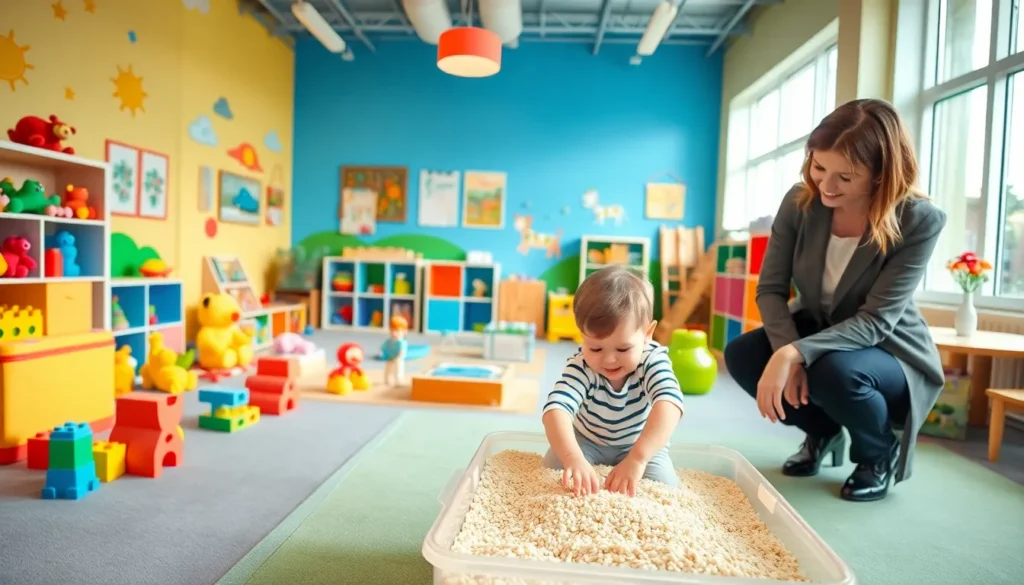When the holiday bells start jingling, co-parenting can turn into a juggling act worthy of a circus performance. If you’re wondering how to keep the holiday spirit alive while ensuring both parents and kids feel included, you’re not alone. With a dash of good communication and a sprinkle of organization, you can create a co-parenting holiday schedule that minimizes stress and maximizes joy. Let’s jump into the do’s and don’ts of co-parenting during the holidays, and maybe have a chuckle or two along the way.
Table of Contents
ToggleUnderstanding Co-Parenting During Holidays

Co-parenting during the holidays is akin to a delicate dance where every step counts. The excitement of the season can sometimes be overshadowed by the complexities of sharing time with children, but understanding the dynamics can make a world of difference. Each parent brings something unique to the table, and it’s essential to recognize the importance of teamwork during these festive times. Let’s face it: the holidays aren’t just about the presents: they’re about family traditions, joyous moments, and creating memories.
The key to navigating this festive maze is understanding that both parents have a vital role. Ideally, the goal is to bring forth a harmonious atmosphere where everyone feels valued. From Halloween to New Year’s, the holidays present various opportunities for connection, so establishing a clear and cooperative approach can set the tone for a successful co-parenting experience.
Importance of a Holiday Schedule
Imagine entering the holiday season without a plan. Sounds chaotic, doesn’t it? A well-structured holiday schedule is essential not only for the well-being of children but also for maintaining a smoother relationship between co-parents. The festive season should be filled with laughter, not lingering tension. By laying out a clear schedule, each parent knows their responsibilities and expectations, leading to less confusion and more time for fun.
Also, a holiday schedule ensures that traditions are honored and time with the kids is equitable. Children thrive on consistency, and having a predictable plan during the holidays helps them feel secure. They can look forward to spending time with both parents, knowing that their traditions will be maintained throughout.
Creating a Balanced Holiday Plan
Crafting a balanced holiday plan might feel overwhelming, but it doesn’t have to be. The first step is to have a sit-down conversation where both co-parents express their wishes and expectations. This step is crucial in avoiding misunderstandings or last-minute changes that could unsettle the kids. Communication is the backbone of an effective holiday plan, so remember to keep things light.
Tips for Effective Communication
Clear and respectful communication serves as the foundation for a successful co-parenting schedule. Approach conversations about holiday plans as a team effort, where both parties listen actively and share their viewpoints. Use phrases like “I understand where you’re coming from…” or “What do you think about this idea?” to foster a collaborative spirit.
Setting Boundaries and Expectations
Setting clear boundaries is equally vital. Discuss which holidays each parent will have the children and weigh the importance of specific traditions or activities. It’s also beneficial to establish a checking-in system to reassess plans, ensuring that everyone feels heard. The aim is to build a cooperative environment that allows both parents to contribute meaningfully to the holiday experience.
Celebrating Traditions Together
The holidays are ripe with traditions, from lighting menorahs to decorating Christmas trees. Fortunately, co-parents can work together to incorporate these cherished rituals into their schedules. Collaborating on special occasions fosters camaraderie and encourages a sense of unity for the children.
Navigating Special Occasions and Events
Special occasions like Thanksgiving or holiday parties can spark a flurry of emotions. Keep in mind that it’s not always about which parent gets to have the kids on a specific day. Treating these events as opportunities to celebrate together, when possible, can relieve pressure and create a rich tapestry of family memories. Allow everyone to feel included, even if it’s through video calls or shared events.
Dealing with Conflicts and Challenges
Let’s be real: even the best-laid plans can go awry. Conflicts may arise, and unexpected challenges can pop up. Instead of letting the festive spirit fade away, embracing flexibility can save the day.
Adjusting the Schedule When Necessary
If last-minute changes to the holiday schedule are unavoidable, approach them with a positive attitude. Openly discuss the new variant of plans and strive to find the best solutions for the kids. Adjusting the schedule can sometimes lead to unique experiences that the children will cherish, especially if it’s done in a supportive manner. Keep conversations solution-oriented and always prioritize the children’s well-being over individual preferences.




